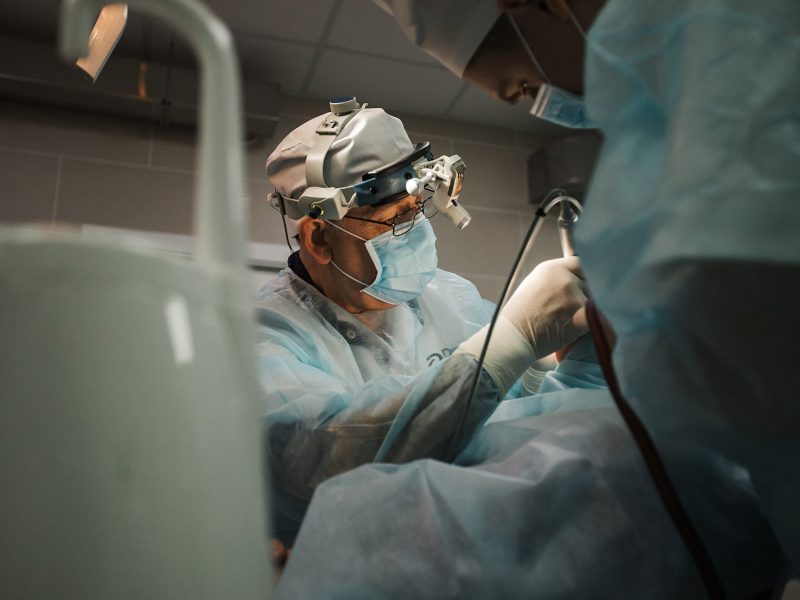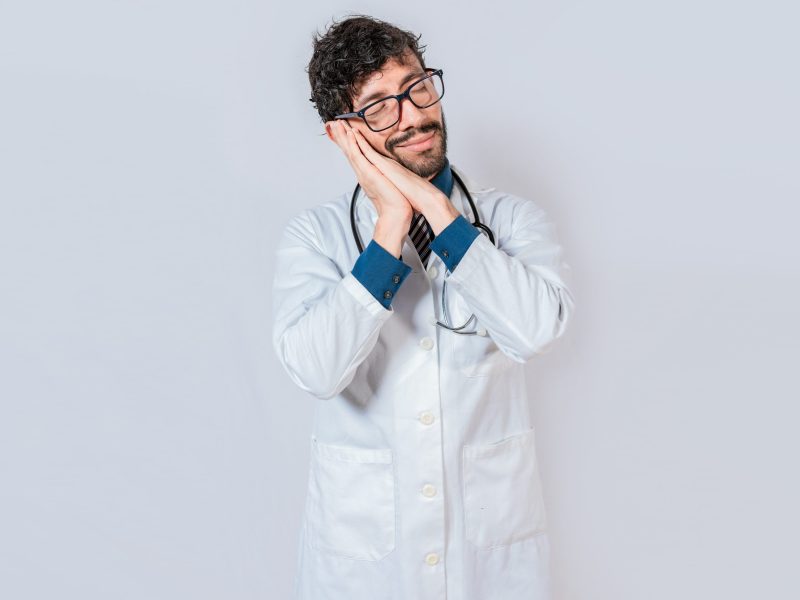The Impact of Traumatic Dental Experiences
Having a bad experience at the dentist can really stick with you, affecting not just your next dental visit but your overall health as well. It’s common for people to feel nervous about dental treatments after a scary experience, and this can lead them to skip important visits to the dentist. This avoidance can harm not just your dental health but your overall well-being, too. That’s why sleep dentistry for traumatic dental experiences could be a game changer, providing a calm, pain-free way to take care of your dental needs without the stress.
Why Sleep Dentistry is the Best Option for Traumatic Dental Experiences
Sleep dentistry, which involves using general anaesthesia, is ideal for those who have had negative experiences at the dentist. Under general anaesthesia, you’re completely unconscious, ensuring you feel no pain and have no memory of the procedure. This can provide a soothing experience, removing any fear or anxiety associated with dental work. Dentists can perform a range of treatments, from simple procedures to more complex surgeries, all in one go, without causing you any discomfort. For patients who dread dental visits due to past trauma, this approach can make dental care much more accessible and stress-free.

Reduces Anxiety and Fear
If you’ve had a bad experience at the dentist’s office, the thought of another visit might fill you with anxiety. Sleep dentistry can be a great help here, as it uses general anesthesia to make sure you’re fully asleep during the procedure. This approach removes the immediate fear and stress associated with dental work, allowing you to receive the care you need without emotional distress.
Enhanced Comfort and Pain Management
If you’ve had a painful time at the dentist, you might dread going back. Sleep dentistry helps out by making sure you don’t feel any pain during your visit because it puts you to sleep. This way, you don’t have to worry about the pain and can get the dental care you need comfortably, making it easier for you to go back when you need to.
Comprehensive Care in One Session
If past dental visits have left you feeling uneasy, the thought of multiple appointments might seem overwhelming. Sleep dentistry can ease this by letting dentists do several treatments all at once while you’re completely asleep. This means fewer visits, reducing your stress and making the whole process smoother and more bearable.
Managing Complex Cases Safely
For those who have had stressful experiences with dental procedures, the thought of undergoing more complex treatments can be intimidating. Sleep dentistry comes in handy by ensuring that you remain completely still and asleep during these procedures, which is crucial for the success of precise and potentially uncomfortable treatments. This approach keeps everything smooth and pain-free for you.
Psychological Comfort
Knowing they won’t be awake can be a huge comfort for people who get really stressed by the sounds and smells at the dentist’s office. Sleep dentistry takes away these upsetting sensations, offering a big relief and helping protect them from the stress these feelings usually bring.
Prevents Traumatic Memories
One of the best things about sleep dentistry for people who’ve had rough dental experiences is that it prevents new scary memories. Because you’re completely unconscious during the procedure, you won’t remember a thing, which means no new stress is added to your old worries.
Facilitating a Fresh Start
Sleep dentistry can be a new beginning for anyone who’s skipped going to the dentist because of past bad experiences. It lets you take care of your teeth without the stress, which might even change how you feel about dental visits and help you keep up with regular check-ups.
Improved Cooperation
Sleep dentistry is really helpful for those who get nervous or have scary memories of dental visits because it keeps them calm and still. This makes it easier for dentists to do their job well and quickly without any trouble. By ensuring patients are relaxed and not moving, the dentist can focus on providing the best care possible. Plus, it can turn a visit that might have been stressful into a smooth and worry-free experience, encouraging patients not to avoid future dental care.
Who Is an Ideal Candidate for Sleep Dentistry?
Here’s who might benefit the most from sleep dentistry:
- People with Severe Dental Anxiety: If the thought of a dental appointment makes you feel genuinely scared or stressed, sleep dentistry can help you relax completely during the procedure.
- Those with a Low Pain Threshold: If you find dental procedures particularly painful or uncomfortable, sleep dentistry offers complete sedation that ensures you feel no pain at all.
- Patients Needing Major Dental Work: If you’re facing a long session in the dentist’s chair for complex procedures, being sedated can make it much easier to get all the work done in one go without discomfort or stress.
- Individuals with Special Needs: Sleep dentistry allows those who find it difficult to sit still for extended periods due to physical or developmental conditions to have a calm and still environment that is safe for both patient and dental staff.
- People with a Strong Gag Reflex: If you struggle with a gag reflex that makes dental work difficult, sedation can help suppress this reflex, making it easier for your dentist to work efficiently.
- Those with Past Traumatic Dental Experiences: If previous bad experiences have made you wary of the dentist, sleep dentistry can provide a trauma-free way to receive the necessary dental care, as you won’t be awake to experience the procedure.

Is Sleep Dentistry for Everyone?
It’s important to have a comprehensive discussion with your dentist and possibly your primary healthcare provider to evaluate the benefits and risks of sleep dentistry based on your specific health profile.
Sleep dentistry may not be suitable for everyone due to various health conditions and factors that may increase the risk of complications during sedation. Here are some considerations to determine if sleep dentistry is right for you:
Health Conditions
Obstructive Sleep Apnea (OSA): Patients with OSA may experience complications from the sedatives used, as sedation can exacerbate breathing problems associated with sleep apnea.
Respiratory Issues: Those with reduced respiratory function or conditions like chronic obstructive pulmonary disease (COPD) should be cautious, as sedation can impair breathing further.
Cardiovascular Disease: Patients with heart conditions may face increased risks, as sedation can affect cardiovascular stability.
Age and Physical Health
Elderly Patients: Older adults may have multiple health issues that can complicate the use of sedation, requiring a thorough evaluation before proceeding.
Children: The safety and effects of sedation on children, especially very young ones, need careful consideration and should only be performed under the guidance of specialists.
Allergies and Medication Sensitivities
It’s crucial to disclose any known allergies to medications, particularly those related to anesthesia, to avoid allergic reactions during the procedure.
Medication Interactions
The interaction of sedatives with other medications, especially those for chronic illnesses, needs careful management. Always discuss your current medications with your dentist and a healthcare provider.
Pregnancy
Generally, sedation is not recommended during pregnancy due to the unknown effects on the developing fetus, especially during the first and third trimesters.
Mental Health
Patients with certain psychiatric conditions may have altered responses to sedatives, which can complicate the administration and effectiveness of sleep dentistry.
Frequently Asked Questions
Is sleep dentistry safe for patients with previous traumatic experiences?
When administered by qualified professionals, sleep dentistry is safe. Dentists will assess a patient’s medical history and current health to choose the safest and most effective sedation method.
Will I feel any pain with sleep dentistry?
One of the primary benefits of sleep dentistry is its ability to control pain and discomfort. Patients typically feel no pain during the procedure and have little to no memory of the experience, which is ideal for those with dental phobias or traumatic past experiences.
What types of procedures can be performed under sleep dentistry?
Most dental procedures, including tooth extractions, wisdom tooth extractions, root canals, dental implants and more complex surgical procedures, can be performed while a patient is under sedation, ensuring they feel no discomfort during the process.
How do I know if sleep dentistry is right for me?
If past dental experiences have left you anxious, fearful, or traumatised, discussing sleep dentistry with your dentist is a good start. They can evaluate your health and dental needs to determine if it’s the best option for you.
What happens after the dental procedure under sleep dentistry?
After a dental procedure under general anesthesia, you will wake up in the recovery room feeling groggy or disoriented. Common side effects include nausea, dry mouth, dizziness, and sometimes a sore throat from the breathing tube used during the procedure.
Your vitals, such as blood pressure and oxygen levels, will be closely monitored. You’ll typically be required to stay in the recovery area for a couple of hours before going home, accompanied by a responsible adult, as your judgment and coordination may be impaired for up to 24-48 hours.
Can sleep dentistry help if I have a gag reflex?
Yes, sleep dentistry is particularly helpful for patients with a severe gag reflex. Sedation can help relax the reflex, making dental treatments more comfortable and manageable, which is essential for those who have had traumatic experiences related to this reflex during previous dental visits.
Are there any long-term effects of using sleep dentistry?
Sleep dentistry is generally considered safe for repeated use with no long-term adverse effects. However, as with any medical or dental treatment, it is crucial to discuss your specific health conditions and any concerns with your dentist to ensure that sleep dentistry is safe for you.
